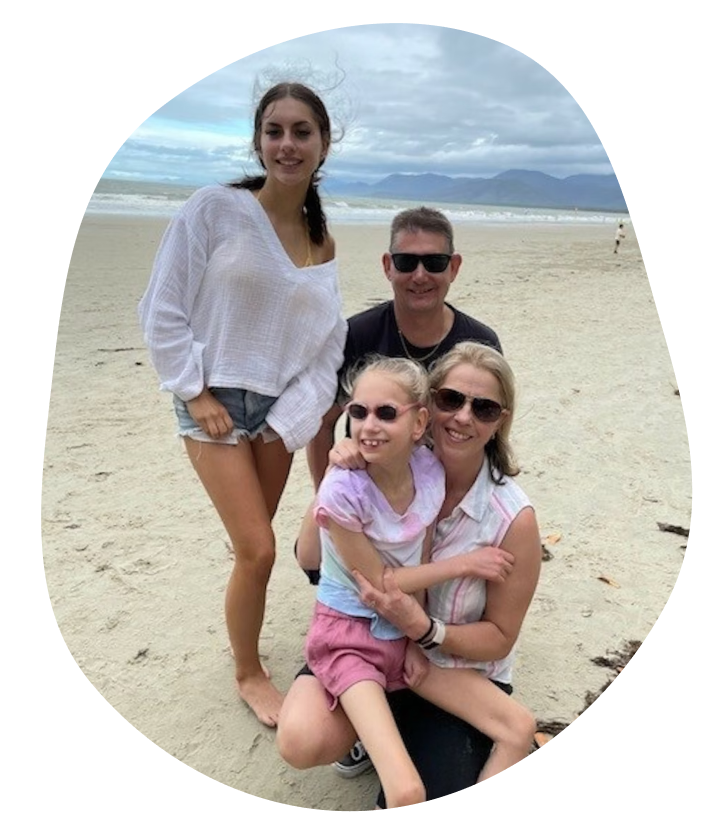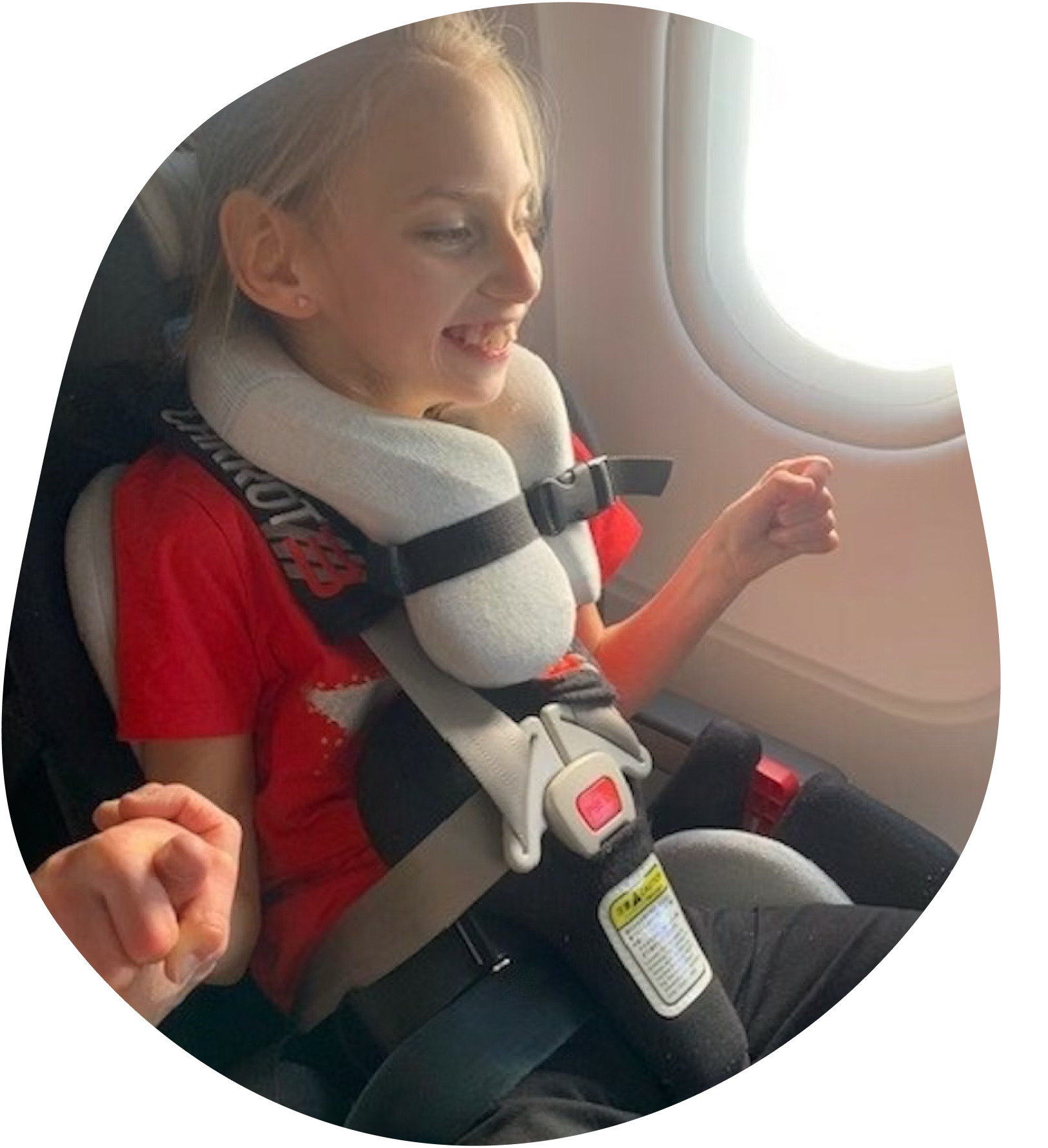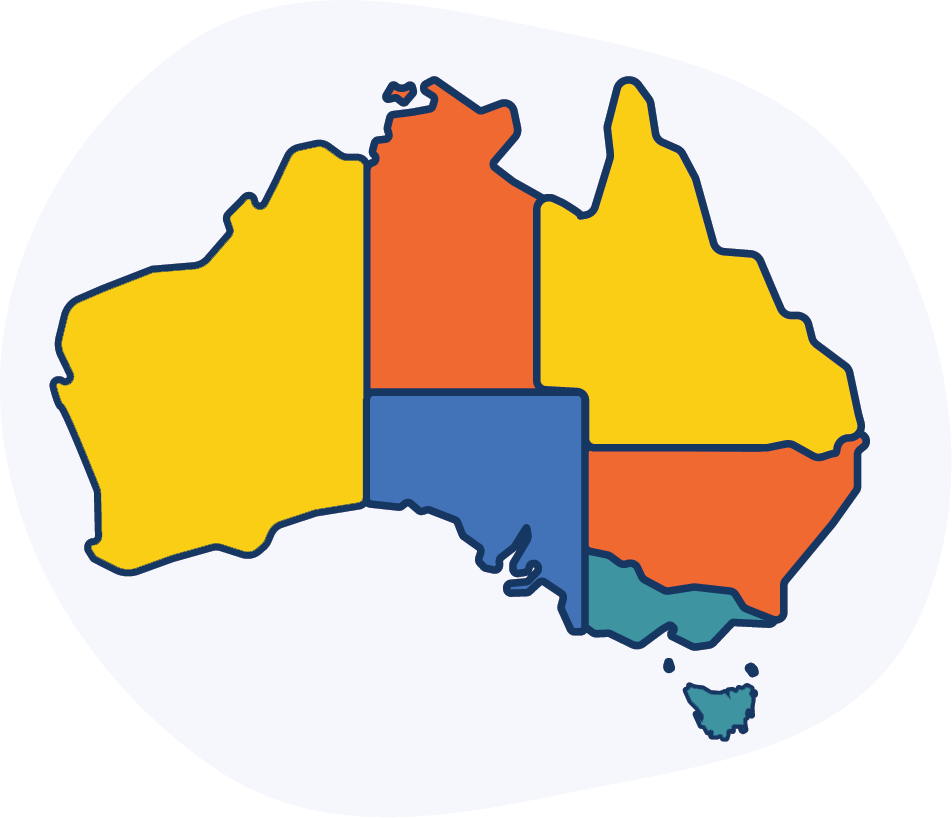Airline travel challenges for people with disability

Introduction
“When we used to go away, you check in, go through the airport, and it’s all exciting and relaxed because your holiday has started. Now, we just fall onto the plane thinking ‘well, that happened’.”
Gretta Jealous, her husband Bill, and their daughters Elise, 17, and Sally, 11, love to travel together – but there are times they aren’t sure they’ll even be let onto their flight.
Sally has cerebral palsy and uses a wheelchair, has a feeding tube and is non-verbal. She’s in grade five and loves school, just like she loves travelling with her family.
But as she’s grown, flying even the shortest domestic flights has become an increasing “nightmare” due to inconsistent rules and a lack of genuine accessibility.
“It’s so unpredictable from airline to airline through to different staff members,” Gretta said.
Inconsistent experience
Flying was straightforward when Sally was a baby, as she could sit on her parents’ lap. But as she got older and she started using a wheelchair and a specialised car seat, her mum Gretta thought it would be “a different ballgame” – and she was right.
Sally requires postural support, which means she is unable to sit in the standard wheelchair offered by airports and needs to use her specialised Carrot car seat on the plane.
But depending on the airline, and the staff working at the time, taking her car seat onboard can be hugely challenging and inconsistent. For example, during a flight to Tasmania with Qantas, staff initially wouldn't allow Sally's car seat on the plane.
“Then coming home, the car seat went straight on with no questions," Gretta said.

Flying with a wheelchair
Sally’s wheelchair is no exception – with the family experiencing a different process on almost every flight. It ranges from being told they can’t take her wheelchair to the gate (“I said well how are we going to get her there?”) to the wheelchair being stowed on its side or pulled apart.
Gretta said once you were finally through the gate, airline staff were always helpful – but the process to get there was “stressful”.
During one flight coming home from the Gold Coast with Qantas, Gretta was told Sally's wheelchair had to be laid on its side instead of packed in a container – only to find the wheelchair in pieces at the other end.
“The staff were horrified and helped us with the process of having the repair costs covered – which totalled about $1600 – but I just don’t understand why it had to happen," she said.

Lack of accessibility
While airlines claim accessibility, Gretta said the reality is far different. For example, to get onto the plane Sally’s parents must carry her up the stairs – even though lifts are technically available.
“We decided to use the scissor lift instead of the stairs during a Qantas flight but were told only the aisle wheelchair can go in the scissor lift – with one staff member only," she said.
“I explained Sally can’t safely sit in that chair so they’ll need to hold her up, but staff said they can’t touch her – yet they also wouldn’t let me go on with her. We carried her up the stairs to avoid the drama of it all.”

Holidaying as a family
Gretta reflected that despite the challenges, her family was fortunate to be financially able to holiday together. Sally loves to travel – and deserves to holiday with her family like any other child.
The family is planning a trip to America with Qantas in April 2025 – but have been forced to pay extra for two business class seats so Sally can safely and comfortably make the 17-hour journey.
“It’s difficult, but when you pull it off, travelling as a family it brings you together – to go on holiday and have those moments of normality,” she said.


